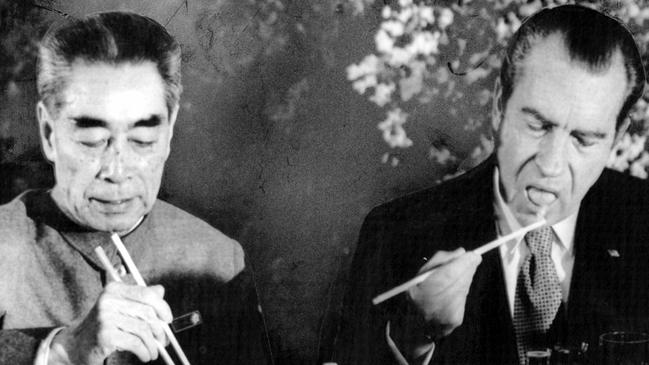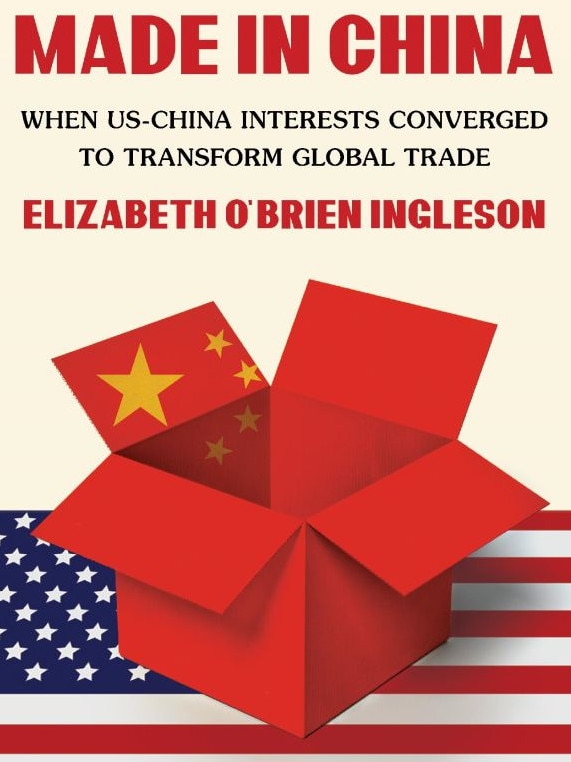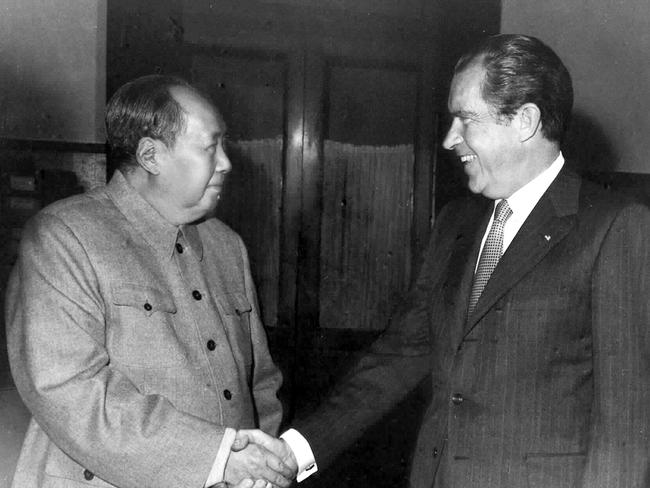How a handshake in China shook the world
Richard Nixon’s opening to Mao’s China led to American business elites coming to see China not simply as a tantalising market, but as a potential manufacturing paradise.

Elizabeth O’Brien Ingleson is a young and rising Australian historian. She earned her PhD from the University of Sydney. She is now a staff member at the London School of Economics and on the editorial board of the journal Cold War History. This is her first book, and it is a beauty. It demonstrates exquisitely detailed research, originality of thought, maturity of judgement and a wide-angled vision of geopolitics.
It has an introduction, a conclusion and eight intervening chapters. Across that span, she shows how, even before Deng Xiaoping sponsored the “reform and opening”of Communist China to the global market, for pragmatic reasons, from 1978 onwards, trade between China and the outside world was already growing. Above all, she shows how Richard Nixon’s opening to Mao’s China (1971-72), led to American business elites coming to see China not simply as a tantalising market, but as a potential manufacturing paradise, because of its cheap, disciplined labour force.

The introduction of Made In China lays out her core argument. Her conclusion sums it up concisely. The eight chapters present a highly impressive range of primary and secondary sources to support her argument, including numerous beautifully exhumed and presented anecdotes, including ones illustrative of the low comedy of American romanticism about Mao’s China, the learning process regarding the Chinese market and the very different views of the whole process in Washington and Beijing.
Assuming that, as an Australian, you have an interest in the massive transformation of the global economy that has followed from the American embrace of China and the decades-long “China boom”, now teetering at a crucial point, this is a book for you.
Anyone within the Australia China Business Council or the Department of Foreign Affairs and Trade or the Treasury whose job it is to think about (our) relations with China really should read it, in order to enliven their own understandings – and, indeed, their imaginations.
The opening chapter, The Nixon Shocks, begins in a crisp manner: in the summer of 1971, President Nixon made two surprise announcements to the American public that would have extraordinary long-term consequences. On July 15, the former Cold Warrior declared he would soon travel to China. Just weeks before, in anticipation of his announcement, he had ended the more than twenty-year trade embargo on China. On August 15, one month later to the day, he revealed that he would bring an abrupt end to the Bretton Woods system of dollar-gold convertibility.

From there, the pace never slackens, and the author’s command of her material never fails to impress.
She shows that the Communist Party’s objectives, in the 1970s, were primarily geopolitical and only secondarily economic; that the American economic elite saw possibilities for making goods in China cheaply for re-export to the US market; and that American organised labour saw a threat to the American blue-collar workforce and feared a wholesale transfer of manufacturing from the US to China which would leave its members unemployed or impoverished.
The detailed argument is something any serious student of China and the global economic system should eat up over a weekend. But at bottom, as Ingleson spells out quite clearly, this is a case study in globalisation, the international freeing up of capital markets, the creation of complex value chains and the way in which China boomed and America fractured. It’s thoroughly worth reading on all these levels.
If there is a criticism to be made of the book, it is a gloss on her conclusion, with ramifications regarding where her attention might most usefully turn next. Her final paragraph reads: Geopolitics and globalisation collided in the 1970s in ways that transformed and ultimately expanded US power. But a slower, quieter change was also beginning to take shape, in which the United States and China constructed an interdependent trade relationship in the very moment interdependence shaped US foreign policy. By making Made in China, US diplomats and businesspeople used trade to lay the groundwork of a process that might, one day, mark the end of their empire and the re-emergence of China’s.

Three themes call for much further research here.
The first is the nature of globalised political economy and geopolitics. The second is the fracturing of US society and politics through the unanticipated side-effects of globalization and the China boom. The third is how, at least in principle, a new global order (a 21st century version of Bretton Woods, as it were) could be conceived and engineered, given the growing confrontation between the US-led global order and Communist Party dominated China.
Key to such a research project are several things Ingleson does not appear yet to have tackled. The Communist Party, after the developments of the 1970s that she analyses, opened up in the 1980s and its brightest and bravest political and intellectual leaders articulated a vision of political, as well as economic, liberalisation. The Communist Party, under Deng Xiaoping crushed those hopes in Tiananmen Square, in 1989.
Julian Gewirtz’s Never Look Back: China and the Forbidden History of the 1980s (2022) shows how the Party, in Orwellian fashion, rewrote and occluded the history of that era, which left open the deeply reactionary and anti-liberal path taken under Xi Jinping that is now a grave challenge to world order. John Fitzgerald’s Cadre Country (2022) covers the ground from Deng to Xi in this regard.
The adverse or controversial social effects of neoliberal globalisation on the Western democracies as polities needs, also, to be thought through. What is at issue is not “empire”, but the very idea of any kind of “rules-based international order”. Such orders have evolved over time, as Philip Bobbitt pointed out in The Shield of Achilles, a generation ago.
Intelligent interventions and violent crises have played their evolutionary parts. We badly need intelligent interventions right now. Perhaps Elizabeth Ingleson can help us all there, from the LSE, with a good history of the Sino-American economic and geopolitical relationship from the late 1970s through to China’s “crisis of success”, as William Overholt called it, in 2018.
Paul Monk is the author of Thunder From the Silent Zone: Rethinking China (2nd edition, 2023), Dictators and Dangerous Ideas (2018) and The West in a Nutshell: Foundations, Fragilities, Futures (2009) among other books.




To join the conversation, please log in. Don't have an account? Register
Join the conversation, you are commenting as Logout